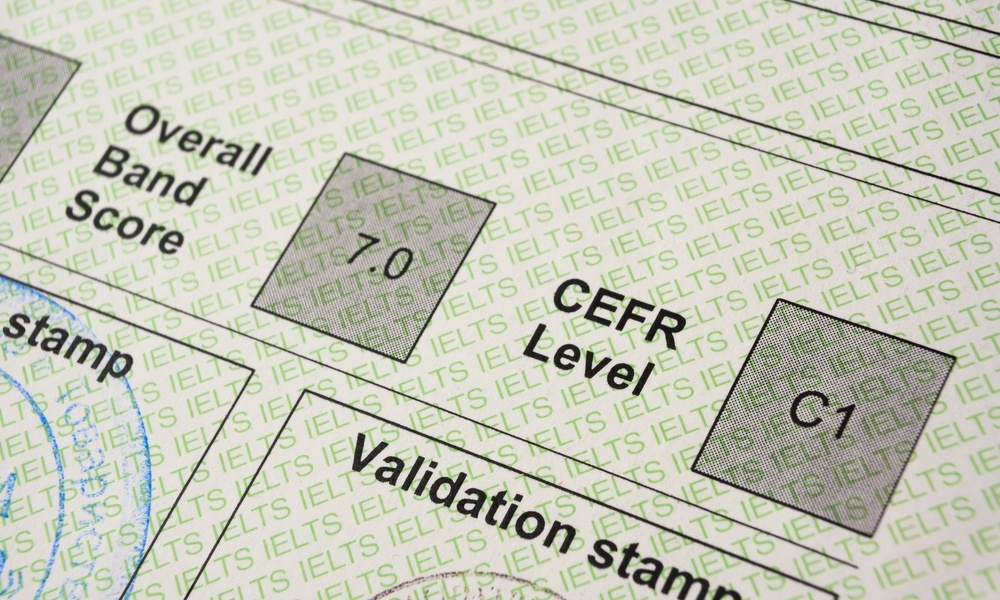
The UK government is reshaping its immigration system. One of the key components in the reform is the One of the key components in the reform is the English Language Requirement for the UK, which emphisisas the need for English fluency. Consequently, according to the May 2025 White Paper published the Home Office major changes aimed to raise language standards for prospective UK visa applicants. Further, these changes will impact not only those applying under the Skilled Worker route but also their dependents and individuals seeking settlement in the UK.
Therefore, this article breaks down the current requirements, explains about upcoming changes and outlines what applicants and sponsors should prepare themselves.
What’s the Current English Language Requirement for the UK?
Under current immigration rules, many visa categories already require an adequate English proficiency. For the Skilled Worker visa applicants, for instance, the current English Language Requirement for the UK is set at CEFR Level B1, which equates to an intermediate level of English. This allows individuals to handle daily situations and communicate on familiar topics.
However, dependents of Skilled Workers and most student visa holders do not need to prove language proficiency at all. Similarly, while settlement applications generally require English at B1 level, there has not been a mandate for a higher threshold–until now.
What’s Changing Under the New Rules?
The most significant reform involves raising the required English language level for Skilled Worker main applicants from CEFR B1 to B2. This shift is more than just a bureaucratic update. Indeed, it marks a real increase in the expected fluency and independence of visa holders. Whereas B1 reflects an ability to handle routine interactions, B2 requires the capacity to engage in more complex conversations, understand detailed texts expressing opinions with confidence.
In addition, for the first time applicant, dependents of both workers and students will need to meet a minimum English requirement. To enter the UK, adult dependents must demonstrate CEFR A1, a basic level of proficiency. Later, if they wish to extend the visa, they’ll need to prove their improved English proficiency of A2 or above.
The government also plans to require the B2 threshold to most settlement applications, so aligning long-term residency with higher language expectations.
Why Is the Government Raising the Language Barrier?
According to officials, these reforms are part of a wider strategy to improve integration, social cohesion, and workplace productivity. The government believes that higher English proficiency will ensure migrants are better equipped to contribute to British society, both socially and economically.
At the same time, these reforms are linked to broader efforts to reduce net migration and shift reliance away from foreign labour. Raising the language standard may discourage some applicants, particularly for lower-paid roles, thereby encouraging employers to hire more local talent.
However, immigration specialists warn that these policies may unintentionally worsen labor shortages in key sectors, such as healthcare and hospitality. Employers should then, consider how these language requirements could affect the recruitment process. In particular, if potential candidates must first pass an approved English test or undergo further training.
How Can Applicants Meet the Requirement?
There are several ways applicants can demonstrate their English proficiency. One common method is to take a Secure English Language Test (SELT) from a provider approved by the Home Office. The test must be taken at the appropriate CEFR level and include both speaking and listening components.
Alternatively, applicants can satisfy the requirement if they are nationals of a majority-English speaking country such as the US, Canada, or Australia. Another route is to present evidence of an academic qualification taught in English, ideally a degree conferred by higher education institutions. For overseas degrees, applicants may need confirmation from Ecctis (formerly UK NARIC) that the qualification meets the necessary standards.
Some professions such as doctors, nurses and teachers may also meet the English requirement through professional registration exams, provided those assessments include language skills of B2 or higher.
What Are the Implications for Employers and Families?
For employers sponsoring workers, the higher language threshold means more rigorous vetting of candidates before issuing a Certificate of Sponsorship. They’ll need to ensure the applicant can meet the B2 requirement. This may involve scheduling tests, reviewing academic credentials, and supporting language development.
Dependents who were previously unaffected by language requirements now face new hurdles. Families will need to plan ahead to ensure that spouses or adult partners meet the A1 requirement. Indeed they must do so before entry and then progress to A2 before applying for extensions. This could impact family decisions around relocation and timelines.
Employers should also anticipate longer processing times and possibly higher costs, especially if candidates must take or retake SELTs or obtain qualifications assessments.
Looking Ahead
These reforms are scheduled to come into effect in phases, starting later in 2025. While they are intended to promote stronger integration and higher productivity, they also raise the bar for entry into the UK and for achieving long-term settlement.
Applicants and sponsors alike should begin preparing this as soon as possible. It is essential to verify current English language levels, schedule any necessary tests well in advance, and consult immigration advisors where needed. By acting early, both individuals and employers can avoid last-minute complications and ensure compliance with the upcoming standards. Meeting the English Language Requirement for the UK will be crucial for anyone seeking long-term settlement.
The message is clear: mastering English to a higher standard is no longer just an advantage—it’s a requirement for building a future in the UK.